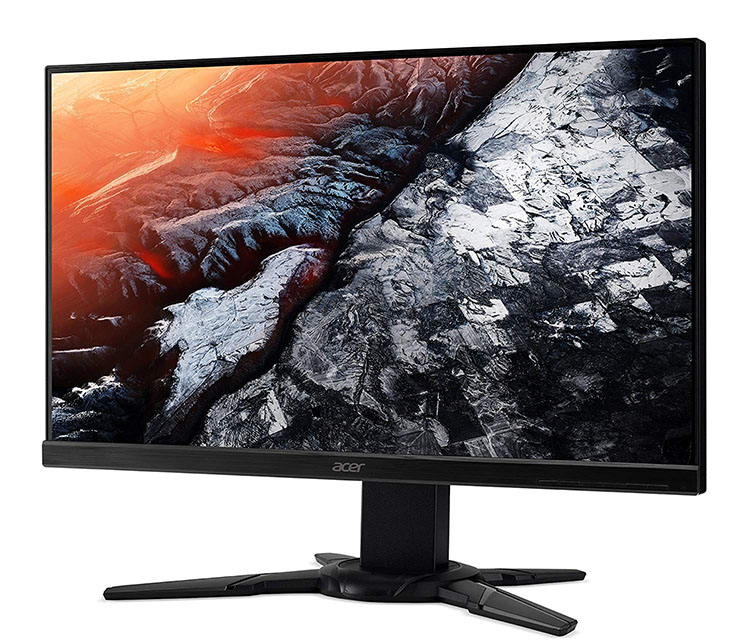Acer XF251Q Gaming Monitor Review: Ideal Budget Rig Companion
Why you can trust Tom's Hardware
Bottom Line
If you’ve lamented the dearth of inexpensive gaming monitors that actually perform well, your troubles may very well be over. The Acer XF251Q offers excellent performance and solid build-quality for around $200 at this writing. While it runs a bit slower than more expensive screens and offers a little less resolution, its overall performance is quite good. We were impressed with its nicely saturated image and build quality. This is a solid package that complements modest gaming rigs perfectly.
During our benchmark tests, we did find flaws in its gamma tracking. A slightly dark trace means that some mid-tone details may be harder to see. Color in that same brightness range is a little more saturated. It may be off-spec, but we found the added image depth and vividness to be a good thing. That, coupled with excellent contrast, made for a surprisingly good picture that easily had us forgetting about the XF251Q’s FHD resolution.
1920x1080 pixels can look good when the screen size is relatively small. At 24.5 inches, this monitor offers a respectable 90ppi. That’s enough for sharp detail and, more importantly, helps the panel perform well with less expensive video cards. Our Radeon R9-285 easily kept the frame rates between 60 and 70 fps in both Tomb Raider and Battlefield 4, and that was with detail set to Maximum. Thanks to a well-implemented overdrive, 75Hz and FreeSync, we saw no instances of motion blur, ghosting, or frame tears.
It’s easy to get a great monitor when you have $600 or more to spend. When your budget is a third of that, good screens are harder to find. Acer has answered the call for value with the XF251Q. If you have a modest gaming rig or a system built on a budget, it’s an ideal display that should be on your short list.
MORE: Best Gaming Monitors
MORE: How We Test Monitors
MORE: All Monitor Content
Get Tom's Hardware's best news and in-depth reviews, straight to your inbox.

Christian Eberle is a Contributing Editor for Tom's Hardware US. He's a veteran reviewer of A/V equipment, specializing in monitors. Christian began his obsession with tech when he built his first PC in 1991, a 286 running DOS 3.0 at a blazing 12MHz. In 2006, he undertook training from the Imaging Science Foundation in video calibration and testing and thus started a passion for precise imaging that persists to this day. He is also a professional musician with a degree from the New England Conservatory as a classical bassoonist which he used to good effect as a performer with the West Point Army Band from 1987 to 2013. He enjoys watching movies and listening to high-end audio in his custom-built home theater and can be seen riding trails near his home on a race-ready ICE VTX recumbent trike. Christian enjoys the endless summer in Florida where he lives with his wife and Chihuahua and plays with orchestras around the state.
-
Rakanyshu 6 or 8 years ago i bought a couple 24 inches screens similar to this thing for 100 each, is ridiculous that after so much time the only thing that changes is price... i mean screens and ram modules are almost the same as 8 years ago only more expensive... (ddr3 to ddr4) for regular computer usage you would not notice the difference and there is almost not worth it to buy this monitor if you already have one you bought in this decade.Reply
